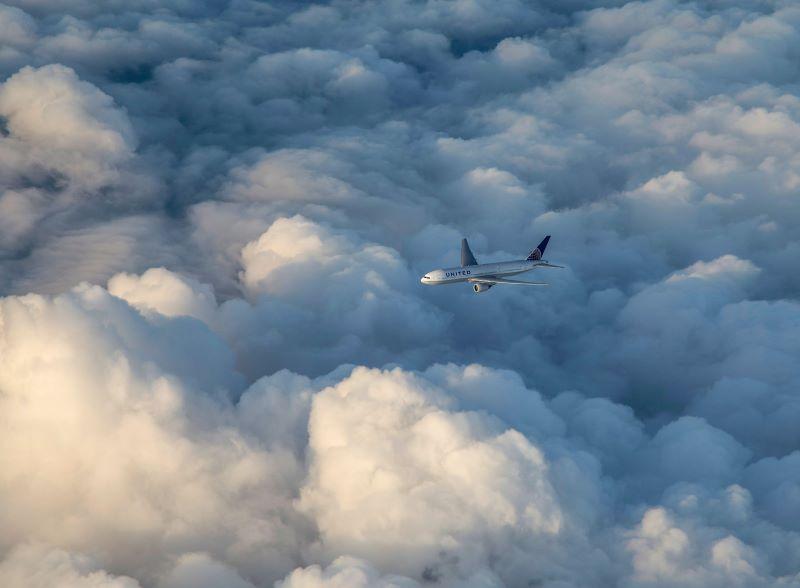
Diverting Newark-bound international flights to large hubs rather than smaller airports nearby, is something United Airlines CEO Scott Kirby said has made a “big difference,” while sharing lessons learned following the latest bout of severe weather in the U.S. northeast.
“We used to divert them to Hartford or [other] airports that are close to Newark, [but] we started diverting them to Chicago, for example,” Kirby said at a Politico-hosted event in Washington, D.C. on July 11. “You can actually have options to take care of those customers, a lot of them are connecting on to other destinations. If you take them into Hartford, they’re just stuck in Hartford until Newark opens up, and you can bring them [to Newark]. It seems like a simple thing, but it makes a big difference.”
Kirby noted three international flights over the weekend of July 8 were diverted to Chicago “where we have resources and we have flights,” calling the move one of many “tactical learnings” gleaned from summer’s bumpy start.
Weather-disrupted irregular operational events, he anticipates, are going to be more likely to occur as the climate warms.
“Dealing with climate change is a business imperative,” he said.
The carrier, which uses Newark (EWR) as one of its major hubs, anticipates changes to its operations at the airport which United’s top executive described as stretched beyond its limit. United currently operates roughly 2,819 system departing frequencies from the New York-area airport, about a 71% share, according to data for the week of July 10 from Aviation Week’s CAPA.
“We have to be more conservative on scheduling in Newark,” Kirby said. “The reality is, Newark has more flights scheduled than the physical infrastructure can handle. We’ve simply passed the infrastructure.”
Storms again hit the northeast region between July 7-9 during which more than 25,000 delays were recorded in the U.S., according to FlightAware, with United’s delayed flights peaking on July 8 at 34%—a rate surpassed by American Airlines (35%), Southwest Airlines (40%), Frontier and Spirit (46%) and JetBlue (52%). Nearly 700 outbound flights were delayed at Newark during the three-day period, according to FlightAware, with significant disruptions recorded at airports in the mid-Atlantic and Florida as well. Storms also impacted flights over the weekend of June 24 and the following weekend, leading into the Fourth of July travel period amid record passenger volumes.
During his remarks in D.C., Kirby said he was pleased with the recovery response to NY-area thunderstorms on July 9, and noted the airline’s coordination with the Federal Aviation Administration (FAA) was improving, adding, “they deserve a lot of credit for what they’ve been doing the last few weeks because, they’re 54% staffed in New York and to have that event be managed and contained, was some heroic efforts. The infrastructure is just challenged, so we’re going to have to reduce the schedule, change the schedule, in Newark, which we’re going to do.”
Technology investments, something he touched on following the weather events in late June, will also need to be made, he reiterated.
“In the short term what we’re doing is we’re actually just going to staff up,” he said. “So on clear blue sky days, we’re going to have more people—crew schedulers and things—they won’t be that busy, but we’re going to staff up to be able to do more for those irregular [operations].”
